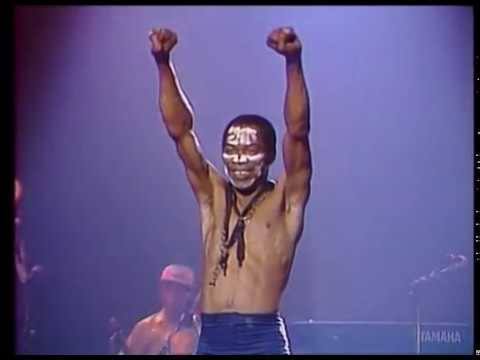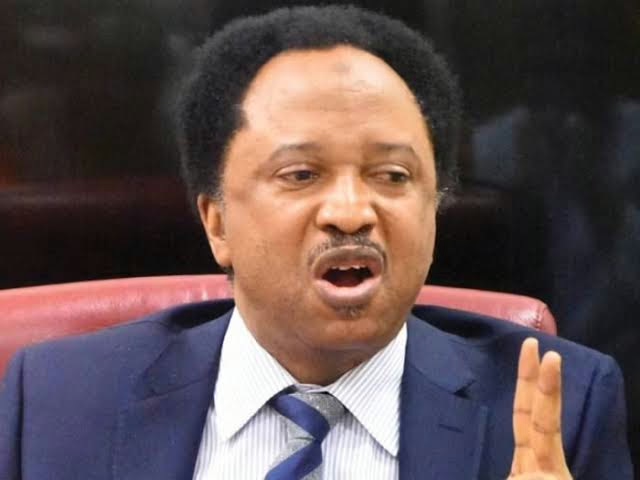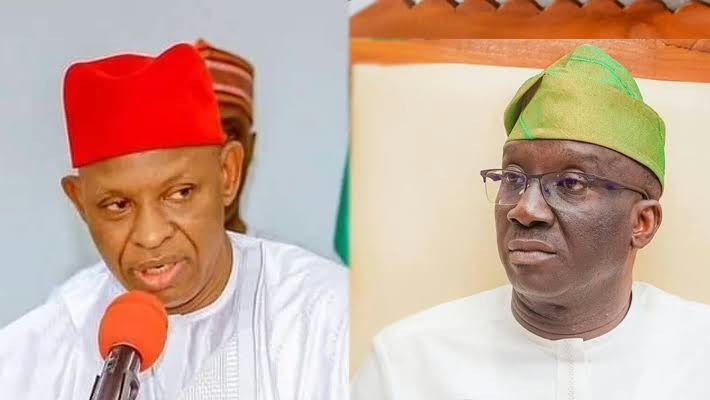Fela was born Olufela Oludotun Ransome Kuti in Abeokuta, Ogun state on 15 October 1938, to a middle-class family. His mother, Funmilayo Ransome Kuti was a famous front-line activist in the anti-colonial movement and his father, reverend Israel Oludotun Ransome- Kuti, a protestant minister and a school principal, was the first president of the Nigerian union of teachers.
His musical talents and radical nature manifested early, so it was no surprise that he went to London in 1958 to study music at the trinity college of music. While there he formed the band Koola Lobito’s, playing a style of music that was a fusion of Jazz with West African highlife. In 1963, Fela moved back to Nigeria, reformed Koola Lobito’s and trained as a radio producer for the Nigerian broadcasting corporation.
In 1969, Fela took the band to the united states, while there Fela discovered the black power movement through Sandra smith (now isodore) a partisan of the black panther party which would heavily influence his music and political views, indeed Fela experienced a political awakening that later reflected in a total transformation of his world view his music and the place of Africa and the black man in history.
His early years and his mother’s political activism had exposed him to some degree to the fight for political independence from colonialism, and especially memorable for the young Fela was being introduced by his mother to the late Kwame Nkrumah.
Nkrumah was the guiding light of Ghana’s independence and the leading advocate for pan- Africanism and the Organization of African Unity (O.A.U).
If this early exposure could be said to introduce Fela to politics, his nine (9) month sojourn in Los Angeles completed his political education and gave birth to the musical phenomenon and political maverick of African music forever.
In his own words “for the first time, I heard things I had never heard before about Africa”. Fela told friends he learnt more about Africa in Los Angeles than he had learnt in Lagos and insisted that the whole atmosphere of the black revolution changed me, my consciousness, my thinking, and my perception of things). I was educated”
The first acclaimed afro-beat song “which gave birth to the genre was my lady frustration part of a recording available today on the compilation named “the 69 Los Angeles sessions. Fela and his band renamed Nigeria 70, returned to Nigeria. He then armed the Kalakuta republic a commune, a recording studio, and a home for many connected to the band that he later declared independent from the Nigerian state.
Fela music became very popular among the Nigerian public and African generals. He decided to sing in pidgin English so that his music could be enjoyed by individuals all over Africa where the local languages spoken are very diverse and numerous. As popular as Fela’s music had become in Nigeria and elsewhere. It was very unpopular with the ruling government and raids on the Kalakuta Republic were frequent.
In 1977, Fela and Africa ‘70’ released the hit album Zombie, a scathing attack on Nigerian soldiers using the zombie metaphor to describe the method of the Nigerian military. The album was a smash with the people and infuriated the government, setting off a vicious attack against the Kalakuta republic, during which one thousand soldiers attacked the commune. Fela was severely beaten, and his elderly mother was thrown from a window, casting fatal injuries.
The Kalakuta republic was burned, and Fela’s studio, instruments and master tapes were destroyed, he claimed that he would have been killed if it were not for the intervention of a commanding officer as he was being beaten.
Fela’s response to the attack was to deliver his mother’s coffin to the main army barrack in Lagos and write two songs, “coffin for head of state” and “unknown soldier” referencing official injury that claimed the commune had been destroyed by Unknown Soldiers. Fela and his band then took residence in crossroads hotel as the shrine had been destroyed along with his commune.
In 1978, Fela married 27 women, many of whom were his dancers, composers and singers to mark the anniversary of the attack on the Kalakuta republic. The year was also marked by two notorious concerts, the first in Accra in which a riot broke out during the song “Zombie” which led to Fela being banned from entering Ghana.
The second was at the Berlin Jazz festival, after which he had a lot of his band members desert him due to various issues. Despite the massive setbacks, Fela was determined to come back. He formed his political party, which he called the movement of the people.
In 1979, he put himself forward for president in Nigeria’s first elections for more than a decade but his candidature was refused. At this time, Fela created a new band called Egypt ‘80’ and continued to record albums and tour the country. He further infuriated the political establishment by dropping the names of ITT Vice president Moshood Abiola and then General Olusegun Obasanjo at the end of a hot-selling 25-minute political polemic titled ITT (international thief-thief) in 1984, he was again attacked by the military government, who jailed him on a dubious charge of currency smuggling.
His case was taken up by several human right group and after 20 months, he was released from prison. He continued to release albums with Egypt “80” and made a number of successful tours of the United State of America and Europe and his album output slowed down in the 1990s.
He died on 2nd August 1997, and more than a million people ironically including from the armed forces and police attended his funeral in Lagos. His musical career was matchless and prolific with over 70 albums and over 200 songs.
Source: Online Platform












Leave a Reply